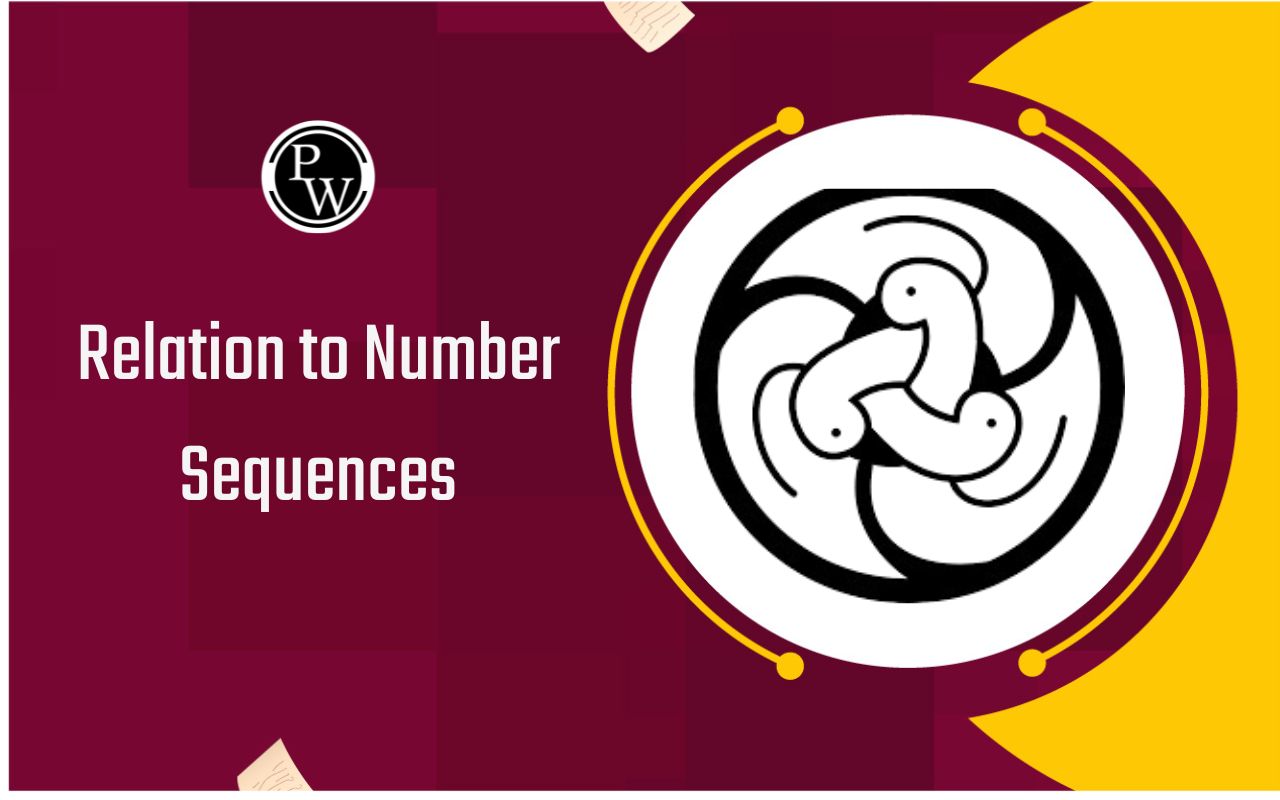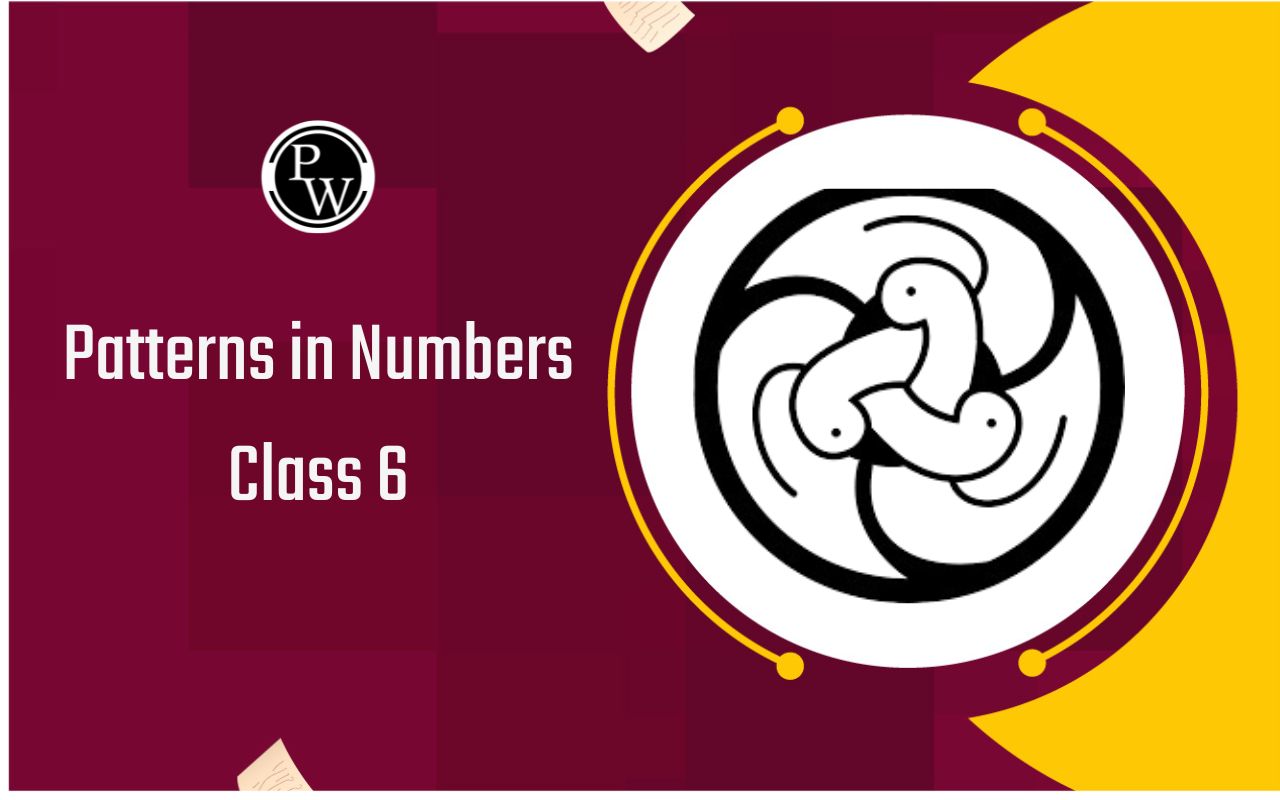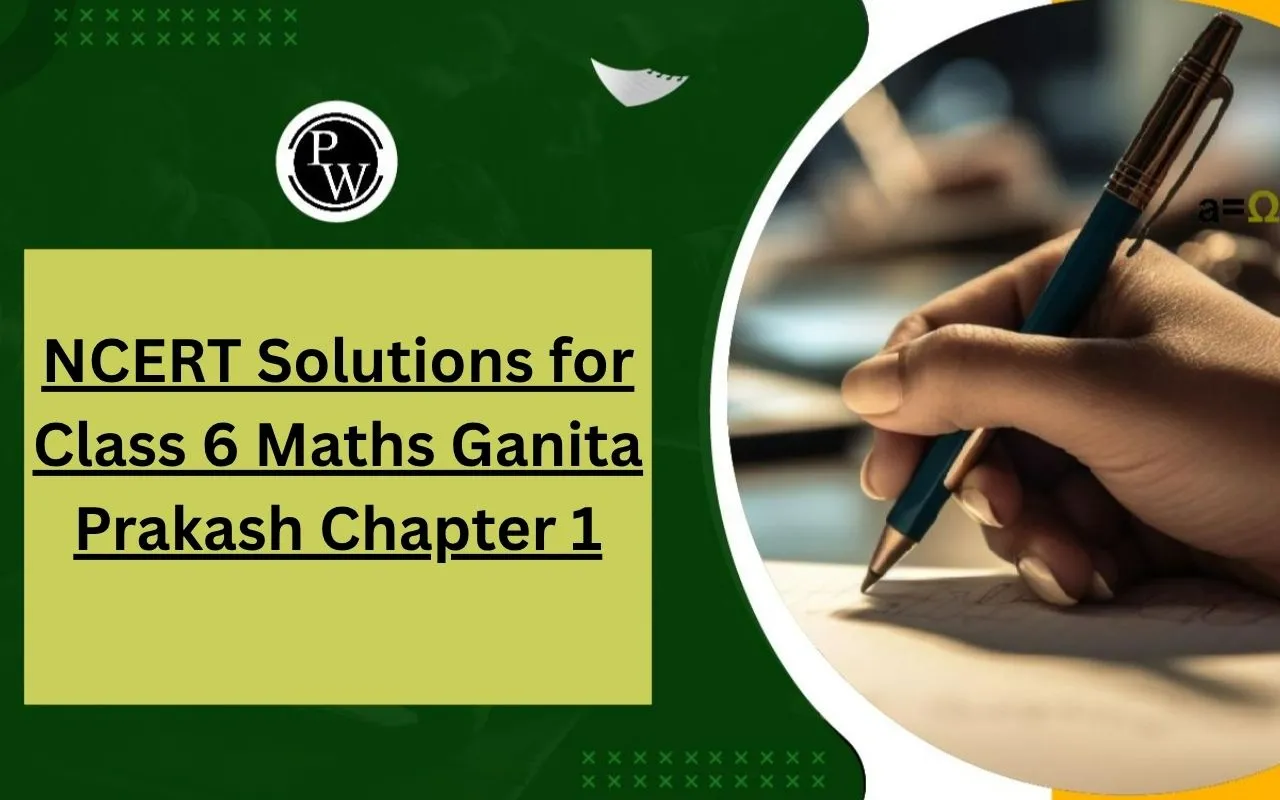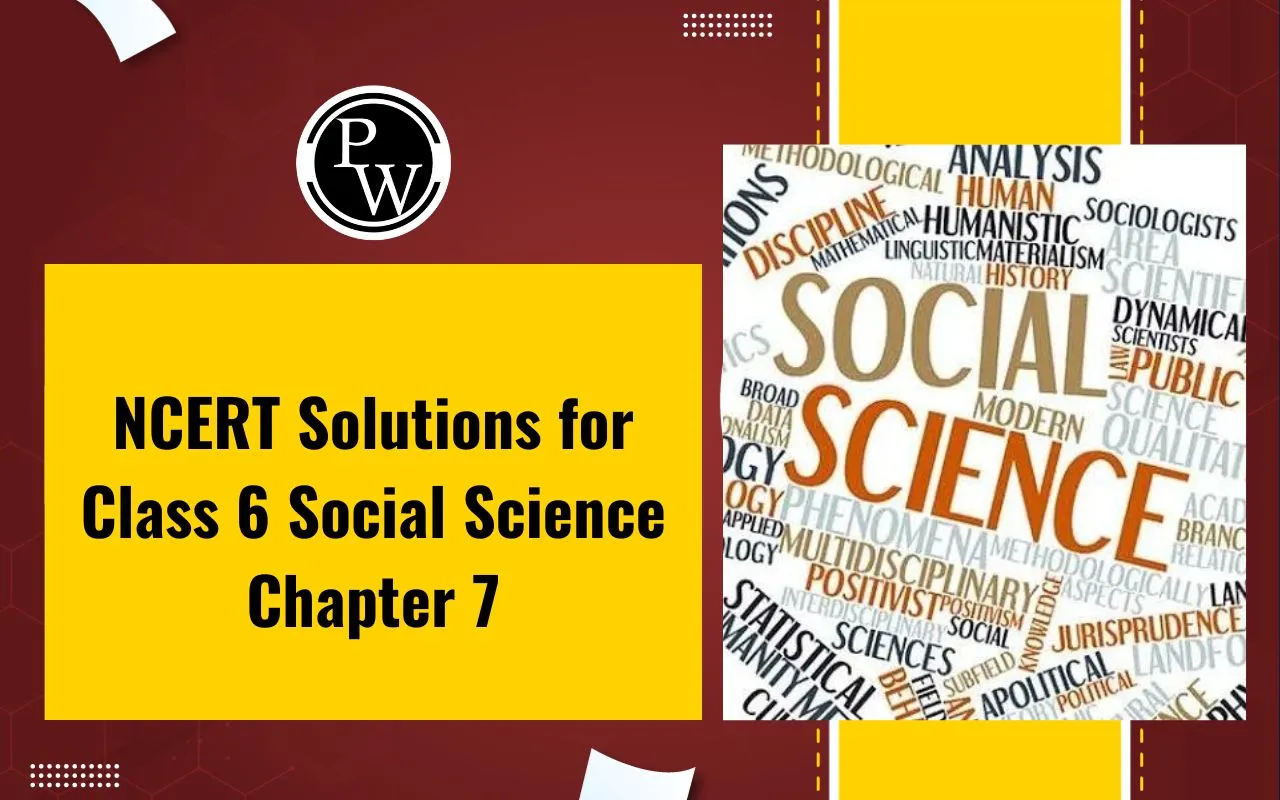
NCERT Solutions for Class 6 English Honeysuckle Chapter 8
NCERT Solutions for Class 6 English Honeysuckle Chapter 8 : Are you a student of class 6 struggling to understand the concepts in your English textbook? Do you find it challenging to solve the questions given at the end of each chapter, especially when it comes to Chapter 8 - A Game of Chance from Honeysuckle? Well, worry no more as we have got you covered! Are you tired of bouncing from one website to another in search of reliable and accurate study resources? Look no further, as we have got you covered with everything you need for this chapter. From a PDF download link for the NCERT solutions to important questions and explanations, we have it all right here. In this blog post, we will be discussing the NCERT solutions for Class 6 English Honeysuckle Chapter 8 - A Game of Chance and provide you with a PDF download for easy access.NCERT Solutions for Class 6 English Honeysuckle
NCERT Solutions For Class 6 English Honeysuckle Chapter 8 Overview
Physics Wallah offers convenient access to the NCERT Solutions for Class 6 English Unit 8 – A Game of Chance. These meticulously crafted solutions empower students to prepare confidently for their English exams. Our team of subject-matter experts has curated the best solutions specifically tailored for Class 6 students. In the narrative, "A Game of Chance," featured in the NCERT Solutions, we encounter a boy named Rasheed, accompanied by his Uncle, exploring an Eid fair. Amidst the diverse array of shops, Rasheed stumbles upon a 'Lucky Shop' where the cunning shopkeeper entices visitors to test their luck for a chance to win enticing prizes. Unfortunately, Rasheed falls victim to the shopkeeper's tricks, investing all his money in the hope of winning, only to walk away with a meager trifle.
NCERT Solutions For Class 6 English Honeysuckle Chapter 5
NCERT Solutions for Class 6 English Honeysuckle Chapter 8 A Game of Chance
Let's explore the key concepts of NCERT Solutions for Class 6 English Honeysuckle Chapter 8 - A Game of Chance:1) Theme of Deception:
- The narrative revolves around the theme of deception, with the shopkeeper using cunning tactics to lure people into trying their luck at the 'Lucky Shop.'
- Students can understand the consequences of being swayed by appearances and false promises.
2) Influence of Greed:
- The story highlights the impact of greed on decision-making, as Rasheed is enticed to spend all his money in the hope of winning a substantial prize.
- The consequences of yielding to greed and making impulsive choices are evident in Rasheed's experience.
3) Lesson in Prudence:
- A Game of Chance serves as a lesson in prudence and wise decision-making.
- Students can reflect on the importance of being cautious, questioning appearances, and considering the potential outcomes before making choices.
4) Cultural Setting:
- The narrative is set against the backdrop of an Eid fair, providing insights into cultural and festive elements.
- Students can appreciate the cultural nuances embedded in the story and gain a broader understanding of diverse experiences.
5) Financial Literacy:
- The story indirectly touches upon financial literacy as Rasheed spends his money without considering the odds or potential returns.
- It offers an opportunity for students to think about responsible financial behavior and the importance of making informed decisions.
6) Narrative Structure:
- The structure of the narrative, including the introduction, rising action, climax, and resolution, is an essential aspect for students to grasp.
- Understanding the sequence of events and their impact on the overall storyline enhances comprehension.
7) Moral Dilemmas:
- The story prompts students to reflect on moral dilemmas related to trust, honesty, and the consequences of succumbing to temptation.
- Discussions can focus on the ethical aspects of the characters' actions and decisions.
NCERT Solutions for Class 6 English Honeysuckle Chapter 6
NCERT Solutions for Class 6 English Honeysuckle Chapter 8 Questions and Answers
Here are the NCERT Solutions for Class 6 English Honeysuckle Chapter 8 - A Game of Chance: 1) Why do you think Rasheed’s uncle asked him not to buy anything in his absence? Rasheed's uncle's advice to refrain from buying anything in his absence stemmed from a genuine concern for Rasheed's well-being. Knowing the atmosphere of the fair and the potential for deceitful shopkeepers, the uncle wanted to protect Rasheed from falling victim to fraudulent schemes. He cautioned him against being lured into purchases that might not be genuine, emphasizing the need for caution and prudence. 2) Why was the shop called ‘Lucky Shop’? The 'Lucky Shop' earned its name as it enticed people to test their luck by paying a nominal amount of 50 paise. The shopkeeper cleverly created an illusion of luck and fortune by offering prizes for those willing to take a chance. The term 'Lucky Shop' aimed to attract customers, encouraging them to believe in the possibility of winning valuable items through a game of chance. 3) An old man won a clock and sold it back to the shopkeeper. How much money did he make? The elderly man who won a clock at the 'Lucky Shop' managed to make a profit of 15 rupees. After claiming the clock as his prize, he opted to sell it back to the shopkeeper. This transaction allowed him to receive a sum of 15 rupees in exchange for the clock, leaving the old man content with his financial gain. 4) How many prizes did the boy win? What were they? The boy at the 'Lucky Shop' achieved success by winning a total of four prizes. These prizes included a comb, a fountain pen, a wristwatch, and a table lamp. The boy's happiness derived from not just winning the items but also from the subsequent exchange for a significant amount of cash. 5) Why was Rasheed upset? Rasheed experienced profound disappointment and upset as he believed his luck had deserted him during the game of chance at the fair. Having been tempted to try his luck repeatedly, he ended up losing all the money he had. The hope of winning a substantial prize turned into regret and frustration, leaving Rasheed emotionally distressed. 6) In what way did the shopkeeper make a fool of Rasheed? The shopkeeper employed cunning tactics to deceive Rasheed at the 'Lucky Shop.' By giving Rasheed items of little value and encouraging him to continue trying his luck, the shopkeeper exploited Rasheed's innocence. The repeated attempts to win big prizes led Rasheed to exhaust all his money, making him an unwitting victim of the shopkeeper's trickery. 7) What was Rasheed’s fault at the fair? Rasheed's fault at the fair was his inability to heed his uncle's advice. Despite being warned not to buy anything and to be cautious, Rasheed succumbed to the temptation of the 'Lucky Shop.' His fault lay in not exercising prudence and falling victim to the deceptive practices of the shopkeeper. 8) How did Rasheed lose all his money at the Lucky shop? Rasheed lost all his money at the 'Lucky Shop' by succumbing to the allure of trying his luck repeatedly. Tempted by the possibility of winning valuable prizes, Rasheed played various games at the shop. Unfortunately, luck did not favor him, and with each attempt, he lost more money until he had nothing left.NCERT Solutions for Class 6 English Honeysuckle Chapter 2
9) How would you describe Rasheed’s ‘bad luck’? Rasheed's 'bad luck' can be characterized by his unfortunate series of events at the 'Lucky Shop.' Despite his genuine intent to try his luck and win prizes, he consistently faced disappointment. The bad luck lay in Rasheed being unaware of the shopkeeper's deceptive practices, leading him to lose all his money without gaining any valuable prizes. 10) How did uncle explain the ‘game of chance’? Uncle explained to Rasheed that the 'game of chance' at the Lucky Shop was a deceptive ploy. He revealed that the old man and the boy who won costly items were associates of the shopkeeper. The game was rigged to trick customers into thinking they had a fair chance of winning valuable prizes. Uncle emphasized that it was all a cleverly orchestrated plan to tempt and deceive unsuspecting visitors. 11) What is meant by a ‘game of chance’? What lesson did the narrator learn from his experience at the fair? A 'game of chance' refers to a situation where the outcome is unpredictable, and luck plays a significant role. In this context, it involves staking money with the hope of winning prizes, often relying on luck rather than skill. The narrator, Rasheed, learned a valuable lesson from his experience at the fair. His innocent attempt to try his luck led to a realization that not every enticing opportunity guarantees success. The fair taught him the importance of discernment and caution, especially when faced with alluring but deceptive scenarios. 12) What trick did the shopkeeper play to tempt his customers to play the losing game? The shopkeeper employed the illusion of luck and the promise of valuable prizes to tempt customers into playing the losing game. By naming the shop 'Lucky Shop' and creating an environment that suggested a fair chance of winning, he enticed people to try their luck. The shopkeeper strategically allowed his associates to win significant prizes, fostering the belief that everyone had a shot at success. This trickery misled customers like Rasheed into parting with their money in pursuit of illusory rewards.NCERT Solutions for Class 6 English Honeysuckle Chapter 7
NCERT Solutions for Class 6 English Honeysuckle Chapter 8 Exercise Questions
A. Answer the following questions: 1) Where did the fair take place every year? The fair took place every year in Rasheed's village. 2) What did Rasheed’s uncle sell? How? Rasheed's uncle sold cloth. He displayed the rolls of cloth under the shamiana, and customers could choose what they liked. 3) What did Rasheed and his friend Bhaiya see at the village fair? Rasheed and Bhaiya saw various things at the village fair, including toys, sweets, fruits, ribbons, trinkets, and crowds of people. 4) Why did Rasheed’s uncle ask them to be careful? Rasheed's uncle asked them to be careful because there were many shopkeepers in the fair who cheated people. 5) What did Rasheed find near the peepal tree? Near the peepal tree, Rasheed found a stall called the "Lucky Shop," where people could pay 50 paise and try their luck to win prizes. B. Who says this to whom and why? 1) “I won’t buy anything. You don’t buy either.” Rasheed's uncle says this to Rasheed and Bhaiya. He advises them not to buy anything, warning them about deceitful shopkeepers. 2) “A blind man in a fairy-tale can see through this. But you couldn’t.” Rasheed’s uncle says this to Rasheed. He remarks on Rasheed's inability to see through the trick played at the Lucky Shop. 3) “I am not blaming you, my boy.” Rasheed’s uncle says this to Rasheed. He reassures Rasheed that he is not blaming him for falling into the Lucky Shop's trap. 4) “He isn’t a real fakir. A real fakir would not ask for money.” Bhaiya says this to Rasheed. He comments on the dubious nature of the man at the Lucky Shop, pointing out that a real fakir wouldn't ask for money.NCERT Solutions for Class 6 English Honeysuckle Chapter 9
Working with the Language A. Complete the following sentences. 1) Tradesmen sold all kinds of goods at the fair. (Simple past)- Tradesmen sold all kinds of goods at the fair.
- Rasheed’s uncle asked him and Bhaiya to be careful.
- They wished him to spend some time with them.
- The uncle knew that there were many shopkeepers who cheated the gullible.
- He advised Rasheed to forget about the incident and his foolishness.
NCERT Solutions for Class 6 English Honeysuckle Chapter 3
Speaking and Writing A. Discuss the following topics in groups. 1) Have you or anyone you know ever been to a fair? What was it like? Discuss experiences of fairs, what was seen, enjoyed, or purchased. 2) Do you think fairs are good places to buy things? Why or why not? Share opinions on whether fairs are suitable for making purchases. B. Write a paragraph on any one of the following phrases. 1) A friend in need is a friend indeed. In times of difficulty, a true friend proves their loyalty and support. 2) All that glitters is not gold. Appearances can be deceiving, and not everything that looks valuable is actually valuable. 3) A fool and his money are soon parted. People who act unwisely with their money may quickly lose it. C. Do the following project work with your group. Project: Report on a Fair Visit Prepare a report detailing your visit to a fair. Include information about the various stalls, items sold, attractions, and your experiences. Discuss what you liked and disliked about the fair. Dictation Your teacher will speak the words listed below. Write against each a word of opposite meaning.- win — lose
- sell — buy
- young — old
- full — empty
- light — dark
NCERT Solutions for Class 6 English Honeysuckle Chapter 10
D. The following phrases from the poem are jumbled up. Rearrange them to form lines from the poem. hats come spinning down the air "Hats come spinning down the air." then snip the line and down they go "Then snip the line and down they go." the game is done they shout with glee "The game is done, they shout with glee." they blow the horns and pound the drum "They blow the horns and pound the drum." E. Say aloud the lines that tell us about the children’s enjoyment of the games. The lines that tell about the children's enjoyment of the games are: "The game is done, they shout with glee." "They blow the horns and pound the drum." F. Write the number of lines that are there in the poem. The number of lines in the poem is four. G. Who do you think is the speaker in the poem, and who is being spoken to? Discuss who the speaker might be and who is being addressed in the poem. H. Write the number of stanzas in the poem. The number of stanzas in the poem is one.NCERT Solutions for Class 6 English Honeysuckle Chapter 4
NCERT Solutions for Class 6 English Honeysuckle Chapter 8 PDF Download
NCERT Solutions For Class 6 English Honeysuckle Chapter 8 is a fantastic resource for students to enhance their understanding and knowledge of the English language. The comprehensively designed solutions provided in this chapter will not only help students in their exams but also in their overall communication skills. These solutions have been crafted by experienced teachers and experts who have made sure to cover all the important aspects of the chapter in a simple and understandable manner. Moreover, with the convenience of being able to download the PDF format, students can access these solutions anytime and anywhere without any hassle. But NCERT solutions are just one piece of the puzzle, there are many other resources out there that can further supplement your learning and improve your grades. One such resource is Physics Wallah notes and solutions which are highly recommended by top educators and students alike. So why wait? Take your learning to the next level with these amazing resources.NCERT Solutions For Class 6 English Honeysuckle Chapter 8 PDF Download
NCERT Solutions for Class 6 English Honeysuckle Chapter 8 A Game of Chance Summary
In the village of Rasheed, the annual Eid fair brought joy and excitement, lasting several days. Rasheed, accompanied by his uncle and their domestic help, Bhaiya, attended the fair. Uncle, meeting his friends, encouraged Rasheed to explore the fair with Bhaiya but cautioned them against making any purchases or wandering too far. Aware of the potential deceit by some shopkeepers, Uncle emphasized caution. While exploring, Rasheed and Bhaiya came across the enticing "Lucky Shop." Here, people paid 50 paise to try their luck, and tales of individuals winning and profiting circulated. An old man won a clock, selling it back to the shopkeeper for a substantial amount. A boy amassed various items, later exchanging them for a considerable sum of cash. Despite Bhaiya's encouragement, Rasheed succumbed to the allure of the games, losing all his money in the pursuit of a significant prize. Disheartened, they returned to their meeting point. Rasheed's uncle, upon hearing the story, consoled him and, instead of scolding, bought him an array of gifts, including a beautiful umbrella, biscuits, and sweets. Later, Rasheed's uncle revealed the trick played by the Lucky Shop owner, explaining that the old man and the boy who won expensive items were accomplices of the shopkeeper. Advising Rasheed to forget the incident and learn from his experience, Uncle turned the unfortunate incident into a lesson on wise decision-making. In the end, Rasheed and his uncle returned home with valuable insights, gifts, and a newfound understanding of the importance of being vigilant in the face of tempting but deceptive opportunities.NCERT Solutions for Class 6 English Honeysuckle Chapter 8 FAQs
Why did Rasheed’s uncle warn him not to buy anything in his absence at the fair?
Rasheed’s uncle warned him not to buy anything in his absence because the fair was known for deceptive shopkeepers who might take advantage of unsuspecting visitors. The uncle wanted to protect Rasheed from falling victim to potential scams and ensure his safety.
Why was the shop called the 'Lucky Shop'?
The shop was called the 'Lucky Shop' because it tempted people to try their luck by paying a nominal amount of 50 paise. The shopkeeper created an illusion of luck and fortune, enticing customers to believe they could win valuable prizes through a game of chance.
What prizes did the old man and the boy win at the 'Lucky Shop'?
The old man won a beautiful clock, which he sold back to the shopkeeper for 15 rupees. The boy won four prizes: a comb, a fountain pen, a wristwatch, and a table lamp. However, it was later revealed that these individuals were associates of the shopkeeper, and the prizes were part of a deceptive game.
Why was Rasheed upset after visiting the 'Lucky Shop'?
Rasheed was upset because he lost all his money while trying his luck at the 'Lucky Shop.' Despite his hopes of winning a significant prize, he ended up with nothing but regret, realizing that he had been deceived by the shopkeeper's tricks.
How did Rasheed's uncle explain the 'game of chance' to him?
Rasheed's uncle explained that the 'game of chance' was a trick played by the shopkeeper. The old man and the boy who won costly items were friends of the shopkeeper, and the game was designed to deceive customers. It was a cleverly orchestrated plan to tempt and exploit unsuspecting visitors.
Talk to a counsellorHave doubts? Our support team will be happy to assist you!

Free Learning Resources
PW Books
Notes (Class 10-12)
PW Study Materials
Notes (Class 6-9)
Ncert Solutions
Govt Exams
Class 6th to 12th Online Courses
Govt Job Exams Courses
UPSC Coaching
Defence Exam Coaching
Gate Exam Coaching
Other Exams
Know about Physics Wallah
Physics Wallah is an Indian edtech platform that provides accessible & comprehensive learning experiences to students from Class 6th to postgraduate level. We also provide extensive NCERT solutions, sample paper, NEET, JEE Mains, BITSAT previous year papers & more such resources to students. Physics Wallah also caters to over 3.5 million registered students and over 78 lakh+ Youtube subscribers with 4.8 rating on its app.
We Stand Out because
We provide students with intensive courses with India’s qualified & experienced faculties & mentors. PW strives to make the learning experience comprehensive and accessible for students of all sections of society. We believe in empowering every single student who couldn't dream of a good career in engineering and medical field earlier.
Our Key Focus Areas
Physics Wallah's main focus is to make the learning experience as economical as possible for all students. With our affordable courses like Lakshya, Udaan and Arjuna and many others, we have been able to provide a platform for lakhs of aspirants. From providing Chemistry, Maths, Physics formula to giving e-books of eminent authors like RD Sharma, RS Aggarwal and Lakhmir Singh, PW focuses on every single student's need for preparation.
What Makes Us Different
Physics Wallah strives to develop a comprehensive pedagogical structure for students, where they get a state-of-the-art learning experience with study material and resources. Apart from catering students preparing for JEE Mains and NEET, PW also provides study material for each state board like Uttar Pradesh, Bihar, and others
Copyright © 2026 Physicswallah Limited All rights reserved.







